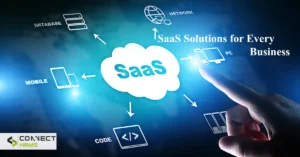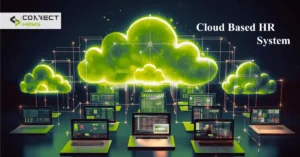Introduction
In today’s fast-paced business world, managing employee payroll can be a challenging task. Given the complexity of payroll calculations, the necessity for accuracy, and the ever-changing tax regulations, organizations must have a dependable system in place. Human Resource Management System (HRMS) software, such as Connect HRMS, has become a powerful tool for streamlining payroll administration, ensuring that employees are paid accurately and on time. In this article, we will explore how HRMS software can enhance payroll processing, making it more efficient and error-free.
Centralized Data Management
HRMS software provides a centralized platform for handling and storing employee data. This includes personal information, employment history, tax details, and salary information. With all this data in one location, HR and payroll teams can access and update it more efficiently, reducing the possibility of errors resulting from manual data entry.
Automating Payroll Processing
One of the most significant benefits of HRMS software is its ability to automate payroll processing. This means that labor-intensive manual calculations are no longer necessary, as the software handles complex computations, deductions, and tax withholdings automatically. It ensures that employees receive accurate and consistent paychecks, whether they receive salaries, hourly wages, bonuses, or overtime.
Ensuring Tax Compliance
Compliance with tax laws is a critical aspect of payroll management. HRMS software is designed to stay up-to-date with evolving tax laws and regulations, automatically adjusting calculations and tax withholdings accordingly. This reduces the risk of non-compliance, penalties, and the need for manual tax adjustments.
Integration of Time and Attendance
Many HRMS software solutions offer integration with time and attendance systems. This seamless integration enables accurate tracking of employee work hours, making it easier to calculate overtime, leave deductions, and other variables that affect payroll. It also helps prevent time theft and buddy punching, ensuring that employees are compensated for the hours they genuinely worked.
Self-Service Portals
HRMS software often comes with self-service portals that empower employees to view and manage their payroll information. This not only reduces the administrative workload for HR teams but also enhances employee satisfaction. Employees can access their pay stubs, tax documents, and update personal information, including bank account details for direct deposit.
Analytics and Reporting
The robust reporting and analytics features of HRMS software enable HR and finance teams to gain insights into payroll expenses, trends, and disparities. This data can be used for budgeting, forecasting, and informed decision-making to optimize the payroll process.
Streamlined Record-Keeping
Accurate and well-maintained payroll records are essential for compliance and audits. HRMS software typically includes record-keeping features, ensuring that historical payroll data is readily available and securely stored.
Time and Cost Savings
By automating various payroll processes and reducing manual data entry, HRMS software can save organizations valuable time and resources. It also minimizes the risk of errors that can lead to costly payroll discrepancies and employee dissatisfaction.
Conclusion
Connect HRMS software is a key component of modernizing and streamlining employee payroll processing. It simplifies the entire payroll process by centralizing data, automating procedures, ensuring tax compliance, and providing self-service options. As a result, the company saves a significant amount of time and money while providing employees with more accurate and timely payouts. If you haven’t already considered integrating HRMS software for payroll management, it may be time to explore your options and update your payroll processes.





